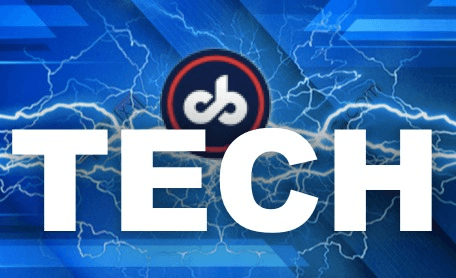Toyota is developing an experimental hydrogen car — a vehicle that could save millions of auto jobs, the company’s CEO says. It is a Toyota Corolla Sport powered by a hydrogen converted GR Yaris engine.

Toyota’s latest push in hydrogen technology comes as it aims to win share of the BEV market

As delegates to the UN climate conference contemplated how to save the planet over the weekend in Glasgow, the chief executive of Toyota Motor was racing an experimental hydrogen car in Japan – a vehicle he says will save millions of auto jobs. Can do. Akio Toyoda drove the colorful Toyota Corolla Sport around the Okayama International Circuit in western Japan powered by a converted GR Yaris engine running on hydrogen. Making such a powerplant commercially viable could allow internal combustion engines to run in a carbon-free world. “The enemy is carbon, not the internal combustion engine. We should not focus on just one technology but use technologies we already have,” Toyoda said on the track. “Carbon neutrality is not about a single choice, but about keeping options open.”
Toyota’s latest push into hydrogen technology comes as the world’s largest carmaker joins the race to capture a growing market share of battery electric vehicles (BEVs) as the world pushes for emissions regulations to meet carbon-cutting promises. hardens it. Although still a small proportion of vehicles on the road, global electric car registrations grew by 41% in 2020, while the overall car market contracted by about a sixth, according to the International Energy Agency (IEA). By 2025, Toyota plans to have 15 EV models available and is investing $13.5 billion over a decade to expand battery production.

Akio Toyoda, chief executive of Toyota Motor, says the enemy is carbon, not ICE. We should not focus on just one technology but use those technologies which we already have
not only electricity
At the gathering in Glasgow, six major carmakers, including General Motors, Ford Motor, Sweden’s Volvo and Daimler AG’s Mercedes-Benz, signed a declaration to phase out fossil-fuel cars by 2040. Toyota declined to join that group, arguing that much of the world is not ready for the transition to electric vehicles. Another notable absence was Germany’s Volkswagen. “We want to be seen not as an EV manufacturer, but as a carbon-neutral company,” Toyota’s vice chairman Shigeru Hayakawa told Reuters in an interview.
Hayakawa compared the technological choice faced by the auto industry to competition in the late 19th century, which used direct power transmission against alternating current. the stakes are high. “If the adoption of carbon-free fuels is quicker, it could end the first battery EV boom,” said Takeshi Miao, an analyst at auto industry research company Carnorama.
In Japan, where mass layoffs are politically difficult, the allure of hydrogen is that it will cause less disruption than a full switch to EVs. The Japan Automobile Manufacturers Association estimates that the automotive industry employs 5.5 million people. Although Toyota and other carmakers are investing resources into building hydrogen fuel cell vehicles (FCVs), none have shown Toyota’s appetite for hydrogen engine technology.

Although other carmakers are investing resources into building hydrogen fuel cell vehicles (FCVs), none have shown Toyota’s appetite for hydrogen engine technology.
challenging technology
One problem is that the engine is not completely carbon-free and therefore cannot be classified as zero-emissions.
Although the byproduct of the combustion of hydrogen and oxygen is water, the engine also burns a small amount of metal, resulting in about 2% of the emissions of a gasoline engine. The exhaust also contains traces of nitrogen oxides.
It costs carbon to make an electric car battery, but EVs don’t pollute when powered.
Hydrogen cars also require heavily pressurized tanks for their fuel. Much of the rear seat and trunk of Toyota’s hydrogen car was taken up by fuel tanks that blocked the rear window.
Safety concerns meant that Toyota engineers had to refit the vehicle away from the potholes where other teams worked on their cars.
Such concerns have also slowed the construction of hydrogen fueling stations in Japan, despite support for the fuel by the Japanese government, which it sees as a key component in the country’s future carbon-neutral energy mix.

Although the byproduct of the combustion of hydrogen and oxygen is water, the engine also burns a small amount of metal, resulting in about 2% of the emissions of a gasoline engine.
At the end of August, Japan had 154 hydrogen stations – six fewer than what the government wanted by the end of March.
“Hydrogen has long been touted as a potential low-carbon transport fuel, but it has been difficult to establish in a transport fuel mix,” the IEA said in a progress report this month.
Even with adequate fuel infrastructure, Toyota will still have to build a vehicle that can compete with traditional gasoline cars and EVs in price, range, and operating cost.
In Okayama, Toyota declined to say when Toyota might launch a car with a commercial hydrogen engine.
“It’s good to have a lot of options. If everything turns out to be an EV, the majority of that industry is in China,” said Eiji Terasaki (57), who traveled to the Okayama circuit from neighboring Kagawa Prefecture to watch the race.
0 notes
(This story has not been edited by NDTV staff and is auto-generated from a syndicated feed.)
for the latest auto news And ReviewFollow carandbike.com Twitter, Facebook, and subscribe to our youtube Channel.
,